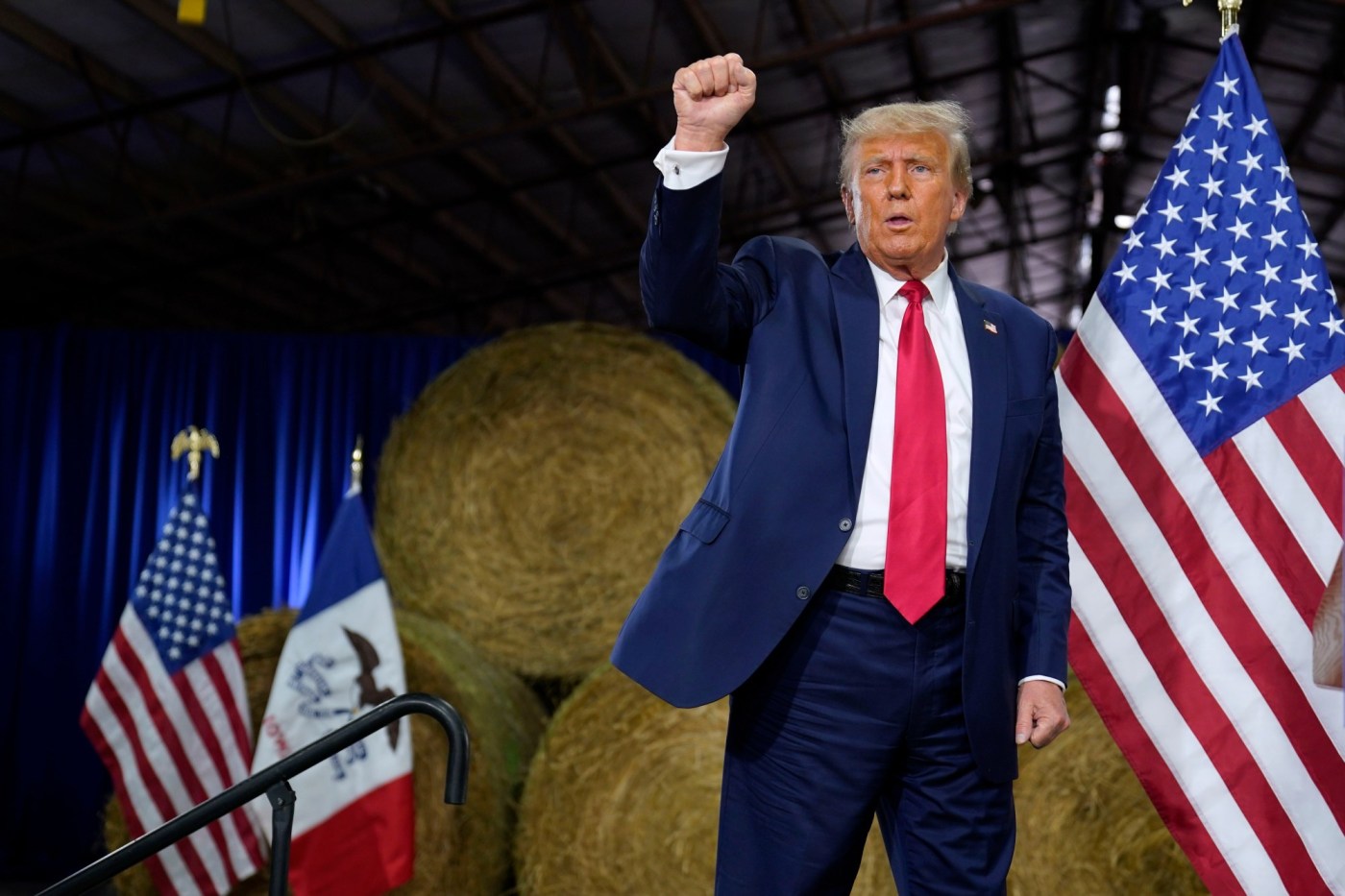
Schoen: Trump has real chance to return to White House
There are two significant questions surrounding the state of the upcoming presidential election. First, can Donald Trump be reelected to the presidency given his four indictments and two civil trials? Second, is there any chance that Nikki Haley, Florida governor Ron DeSantis, or anyone else can stop Trump in the GOP primary and prevent a general election rematch of 2020?
In regards to the latter question, as the Republican Iowa caucuses quickly approach, recent polling in the state shows Haley moving up decisively to 15% and DeSantis frozen at 18%, despite enormous multimillion dollar investments by his campaign and allied super PAC in the state.
Given that former president Donald Trump is running more than ten-points weaker in Iowa than he is elsewhere and Haley’s momentum and upwards polling movement, there is reason to believe she will continue to improve and gain ground.
However, in an unexpected way, the persistence of the DeSantis campaign running in the mid to high teens in Iowa serves to make it even more difficult for the former South Carolina Governor and UN Ambassador to consolidate enough of the anti-Trump support. Put another way the relative strength of Haley and DeSantis in the state blocks each other from becoming more competitive with Trump.
With that being said, my anticipation based on the historical trend of close Iowa caucuses, including when Rick Santorum won in 2012 and Ted Cruz won in 2016, is that Haley will almost certainly continue to make progress in the state and surpass DeSantis. Meanwhile, DeSantis will remain at about 18% or perhaps erode, and Trump will win a narrow and likely unconvincing victory in the January Iowa caucuses.
A week later, New Hampshirites will take to the polls. The Granite State primary probably gives Haley her best shot to win. Polling shows her in a solid second place with 20% of the vote. Furthermore, the dynamics in New Hampshire are much more favorable to Haley’s posture as a mainstream, pre-Trump Republican. Whereas Iowa Republicans tend to be very conservative, 40-50% of the vote in the New Hampshire primary is likely to be unaffiliated voters who are less inclined to vote for Trump than the average GOP primary voter.
Thus, there is the possibility for a surprise Haley win, similar to the 2000 New Hampshire contest when John McCain beat George W Bush in an upset. Given that Wall Street has enthusiastically gotten behind Haley, such an outcome (a close result in Iowa and Haley victory in New Hampshire) will galvanize her campaign and donor network.
That being said, polling from around the country, including in the following two states of South Carolina and Nevada, show stronger positions for Trump due to more ideologically committed GOP voters there. Two successive wins for Trump in those states would possibly put a damper on Haley’s momentum and chances to win the nomination.
While Haley should not be counted out, I am still largely convinced that Donald Trump, despite his legal challenges, will emerge victorious in the Republican primary. If not immediately after Iowa, then after the first several primary states.
Turning to the general election, polling shows Trump leading President Joe Biden both in key states and nationally. There are a few main reasons for this. First, inflation and high cost of living is perceived to be a serious economic problem, with 60% of Americans saying they’re living paycheck to paycheck and having a tough time making ends meet.
Elections tend to be referendums on the performance of the president and if people at the gas pump and supermarket are seeing significant rises in costs, it makes it that much more difficult for the incumbent to win. Given that the president just had his 81st birthday and many voters have concerns about his age, this provides another reason why moderates and swing voters may not support his candidacy in the same numbers they did in 2020.
Furthermore, with the House Oversight Committee led by Representative James Comer sending subpoenas to members of the Biden family, there is the potential issue of the perception of alleged corruption. Of particular concern for the Biden camp are issues related to Hunter Biden’s business dealings and drug and gun charges.
Indeed, the economy, the president’s age, and the perception of corruption have put a damper on Biden’s support and given Trump a narrow polling lead in the early stages of the presidential campaign.
There is one other political issue that is becoming more apparent which occurs anytime the U.S is at war, particularly when it is closely involved in supporting two allies: Ukraine and Israel. The longer the wars go on, the more money the U.S. spends, and the more uncertainty the public has, will typically cause a dip in the president’s ratings. Again, this is in the early stages, but will nevertheless put a ceiling on Biden’s support and remains a problem for the incumbent president.
Based on the circumstances for both the Republican primary and general election that are laid out above, the most likely outcome is a reprise of Biden v Trump in the 2024 presidential election. Though, while Biden began with a slight advantage in 2020 and held that advantage through the bulk of the campaign, that slight advantage has moved to Trump this time around. While his polling lead is certainly not impregnable in a general election, he is in a stronger position than any pundit would have believed when the news of his legal issues first became reported in the summer of 2022.
Douglas Schoen is a longtime Democratic political consultant.


